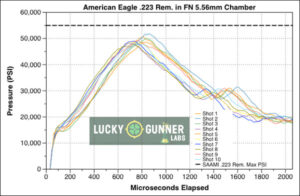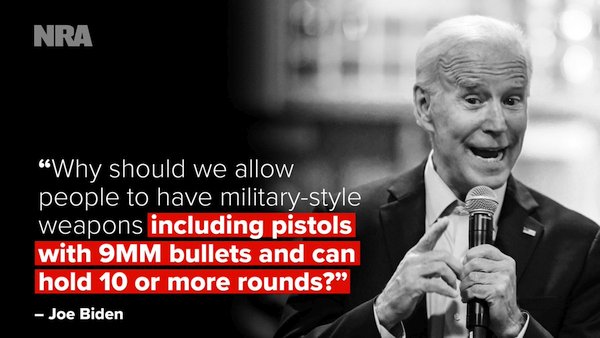November 18th, 2021 – Report by NRA/ILA
Americans have been concerned recently about a rather obscure ATF recordkeeping regulation that has a profound effect on gun rights. Gun control advocates could change this federal regulation to make it worse. This would mean that American gun owners could be subject to a backdoor gun registry. A partial firearm registry would be created by the electronic searchable database that the ATF seeks to create. Firearm registries facilitate firearm confiscation. Federal law requires that firearm buyers who purchase a firearm from a Federal Firearms Licensee, also known as a gun dealer or FFL, complete a form 4473. The dealer then keeps the record of the firearm transfer on their premises. This allows the ATF to trace the firearm back to its last retail purchase if it is found at a crime scene. The records are kept with each FFL so that the system can be protected against government abuses of gun owner data. Gun dealers must keep 4473s for a period of 20 years. To facilitate firearm traceability, dealers must send their last 20 year records to ATF’s National Tracing Center when they go out of business. ATF’s materials may deliberately skip the 20-year requirement. This is in the hope that FFLs will all send their records to the National Tracing Center regardless of age. This system allows ATF to send over a million records from out-of-business dealers each month. Gun rights advocates have obtained records that show that ATF processed 54.7 million of these records in 2021. ATF proposed rule 2021R05 that would make the record-keeping requirements more burdensome for FFLs, and less privacy for gun owners. The proposed rule would require FFLs to keep 4473s for an indefinite period and to surrender all such data to ATF when they close down. NRA-ILA opposes this rule change. The ATF’s electronic searchable database would be a partial firearm registry. Gun rights advocates and gun control advocates both know that firearm registries enable firearm confiscation. This understanding was central to the debate over the Gun Control Act of 1958 and the development of the current recordkeeping systems. Sen. James McClure (R, Idaho) stated that the Gun Control Act of 1968 was a compromise. This was the condition for Federal Government entry into firearms regulation. Records concerning gun ownership would only be kept by dealers and not the Federal Government. State and local governments could not keep them. ———– If anti-gun lawmakers criminalize private firearm transfers, the National Tracing Center may take another step towards a firearm registry. This is sometimes called universal background check legislation. FFLs would allow for more firearm transfers, which would increase the chances of gun owners and firearm recordkeeping that could be added to the National Tracing Center’s database. Gun owners have every right to be vigilant about protecting firearm transfer information. NRA-ILA will continue its efforts to protect gun owner privacy and keep gun owners informed about the ongoing attempts to create a backdoor firearm registry. READ MORE at NRA-ILA website. Similar Posts

. 223 Rem vs. 5. 56x45mm NATO — Major Information You Need to Know
The . 223 Remington and its measurement suit, the 5. 56x45mm, are reportedly the most popular centerfire rifle round in the Western Hemisphere on June 20, 2025. Although” . 223
















